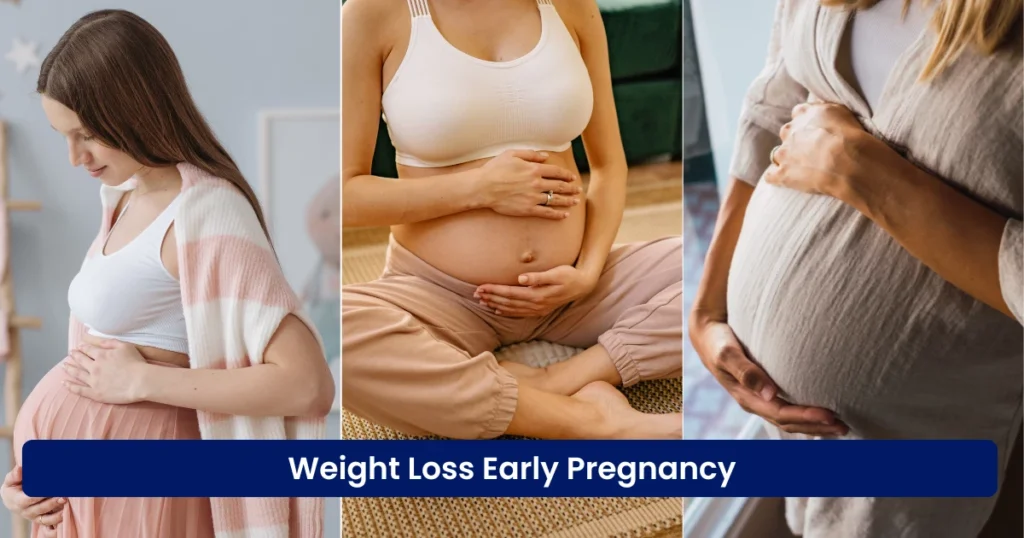Weight loss during early pregnancy is a topic that concerns many expecting mothers. While pregnancy is a time for nourishment and growth, there are instances where weight loss may occur naturally or due to health reasons. This blog post will explore the causes, risks, and safe strategies for managing weight loss during early pregnancy. If you’re navigating this journey, understanding the balance between weight management and a healthy pregnancy is crucial.
Is Weight Loss Normal During Early Pregnancy?

Weight loss in the early stages of pregnancy is not uncommon. Many women experience changes in their bodies, including nausea, vomiting, and loss of appetite, commonly referred to as morning sickness. These factors can lead to a temporary reduction in weight.
However, not all weight loss during pregnancy is a cause for concern. It is essential to differentiate between normal symptoms and underlying health issues that may require medical attention. Consulting with a healthcare provider is always recommended to ensure the health of both mother and baby.
Causes of Weight Loss During Early Pregnancy
- Morning Sickness:
- Nausea and vomiting can result in decreased food intake.
- Frequent vomiting may cause dehydration and loss of essential nutrients.
- Loss of Appetite:
- Hormonal changes can suppress appetite.
- Sensitivity to smells or aversions to certain foods may contribute.
- Dietary Changes:
- Transitioning to a healthier diet may lead to initial weight loss.
- Eliminating processed or high-calorie foods can create a caloric deficit.
- Increased Metabolism:
- Pregnancy increases metabolic rates, leading to higher energy expenditure.
- Underlying Medical Conditions:
- Thyroid disorders, diabetes, or gastrointestinal issues can impact weight.
Risks Associated With Weight Loss During Pregnancy

While mild weight loss in early pregnancy is often harmless, significant or prolonged weight loss can pose risks to both the mother and the developing baby. Some potential risks include:
| Risk | Impact |
|---|---|
| Nutritional Deficiencies | Insufficient vitamins and minerals can affect fetal growth and development. |
| Low Birth Weight | Babies born underweight may face developmental challenges. |
| Maternal Health Issues | Lack of energy and weakened immunity in the mother. |
| Preterm Birth | Severe malnutrition can increase the risk of preterm delivery. |
Safe Strategies for Managing Weight During Pregnancy

1. Focus on Nutrient-Dense Foods
Prioritize foods rich in essential nutrients to support both maternal and fetal health. Examples include:
- Fresh fruits and vegetables
- Whole grains
- Lean proteins (chicken, fish, eggs)
- Dairy products (milk, yogurt, cheese)
- Nuts and seeds
2. Stay Hydrated
Proper hydration is critical for maintaining overall health during pregnancy. Aim for 8-10 glasses of water daily and consider electrolyte solutions if vomiting persists.
3. Eat Small, Frequent Meals
- Eating smaller meals throughout the day can help manage nausea and maintain energy levels.
- Include snacks like bananas, crackers, or yogurt for quick energy boosts.
4. Engage in Light Physical Activity
- Activities such as walking or prenatal yoga can improve digestion and maintain a healthy weight.
- Always consult your doctor before starting any exercise routine.
5. Seek Medical Guidance
- Regular prenatal check-ups are essential for monitoring weight and overall health.
- A healthcare provider can recommend dietary adjustments or supplements if necessary.
When to Be Concerned
It’s important to recognize warning signs that indicate a need for medical attention. These include:
- Persistent and severe nausea or vomiting (hyperemesis gravidarum)
- Unexplained and rapid weight loss
- Symptoms of dehydration, such as dizziness or dark urine
- Weakness or extreme fatigue
If any of these symptoms occur, contact your healthcare provider promptly.
Maintaining a Healthy Mindset
Pregnancy is a time of significant physical and emotional changes. It’s crucial to:
- Avoid comparing your journey to others.
- Focus on your and your baby’s well-being rather than the scale.
- Seek support from loved ones and professionals when needed.
Conclusion
Weight loss during early pregnancy is often a result of natural bodily changes, such as morning sickness or appetite fluctuations. While mild weight loss may not harm the baby, it’s essential to ensure proper nutrition and hydration. Always consult a healthcare provider to address any concerns and maintain a healthy pregnancy.
By following a balanced diet, staying hydrated, and engaging in safe physical activities, you can navigate the complexities of weight management during early pregnancy with confidence. Remember, every pregnancy is unique, and prioritizing your and your baby’s health should always come first.